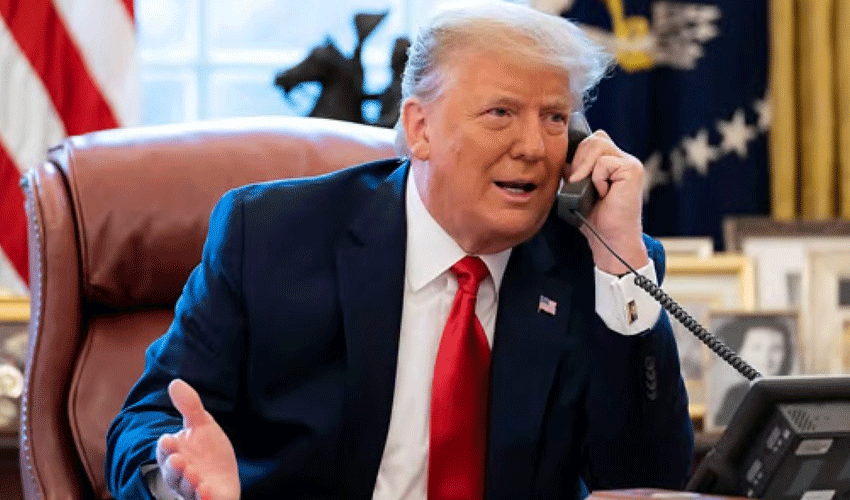The idea of nations holding Bitcoin as part of their national reserves has recently gained traction, especially with former US President Donald Trump making headlines at the Bitcoin Conference in Nashville. Trump announced that if re-elected, he would ensure the federal government never sells off its Bitcoin holdings.
This announcement has sparked a debate in Pakistan, with some influential voices, like crypto expert Waqar Zaka, urging the government to consider Bitcoin as a means to manage its debt crisis.
Pakistan’s economic challenges are well-documented, with the country facing a significant shortfall in external debt.
The Economic Affairs Division recently released a report showing that Pakistan secured only $9.81 billion in external debt in the last fiscal year, far below the projected $17.61 billion. This shortfall underscores the need for innovative solutions to manage the country’s financial obligations.
Speaking exclusively to Samaa Digital, Waqar Zaka - a pioneering crypto expert and Chairman of the Technology Movement Pakistan - reiterated a stance he has held since 2015.
"When Bitcoin was worth $258, I suggested that cryptocurrencies should be kept in reserves like gold to help Pakistan pay off its debts. But I faced criticism," shared crypto expert Waqar Zaka.
He also highlighted that Trump's recent endorsement reinforces his belief in Bitcoin's potential to stabilize economies.
Advocating for its integration into Pakistan's financial strategy, he recommended governmental involvement through his YouTube channel.
Demonstrating his commitment, he initiated and successfully argued as his own lawyer in petition CP 7146/2019, leading to a significant December 2020 Sindh High Court observation that the State Bank cannot deem cryptocurrencies illegal.
His persistent efforts culminated in his appointment to Pakistan’s inaugural crypto regulatory body, alongside SECP and the State Bank, reinforcing his visionary stance—echoed recently by former U.S. President Trump at a major Bitcoin conference.
“Pakistan has over 20 million registered crypto accounts, nearly matching the number of traditional bank accounts,” added Waqar.
Crypto-enthusiastic Waqar Zaka went on to say that this high adoption rate indicates a robust interest in digital assets, which could be leveraged to boost the economy.
The case for bitcoin as national reserve
The idea of using Bitcoin as a national reserve is not without precedent. India, for instance, has regularized the cryptocurrency industry, imposing a 30% tax on crypto gains, similar to capital gains on shares.
This regulatory approach has created a structured environment for crypto trading and taxation, something Pakistan could learn from. With the Pakistani rupee facing devaluation, Bitcoin could serve as an alternative store of value, providing stability in uncertain economic times.
Proposed solutions
To harness the potential of cryptocurrencies, Pakistan needs to:
- Regulate crypto exchanges: Exchanges must obtain a license from the proposed Pakistan Digital Asset Board (PDAB) to operate. They are required to deposit a non-refundable security of USD 10 million to ensure robust customer protection and operational integrity
- Stablecoin regulations: Operators of stablecoins like USDT and USDC must back their circulating digital assets with an equivalent amount of Pakistani Rupees in national reserves
- Compliance with international standards: All exchanges must adhere to the FATF Travel Rule, with mandatory real-time reporting of any cross-border transactions including comprehensive KYC details of the involved parties
- Crypto mining policies: Cryptocurrency mining is restricted to using hydroelectric power. Utilizing any other power sources for mining is illegal and subject to penalties
- Asset declaration: All entities and individuals must declare their digital assets by registering their wallet addresses on a designated government website. Non-compliance will lead to a non-bailable imprisonment of up to three years
- Educational initiatives and public awareness: The PDAB, in collaboration with PTV (Pakistan Television Corporation), will launch educational programs to provide training on cryptocurrency trading and blockchain technology
Meanwhile, unauthorised transfers of funds outside of Pakistan detected by monitoring systems will result in a penalty of three years in jail. This strict measure is to prevent illegal financial flows and protect national economic interests.
By implementing these measures, Pakistan can create a secure and conducive environment for crypto trading, potentially attracting significant investments and aiding in debt reduction.



























